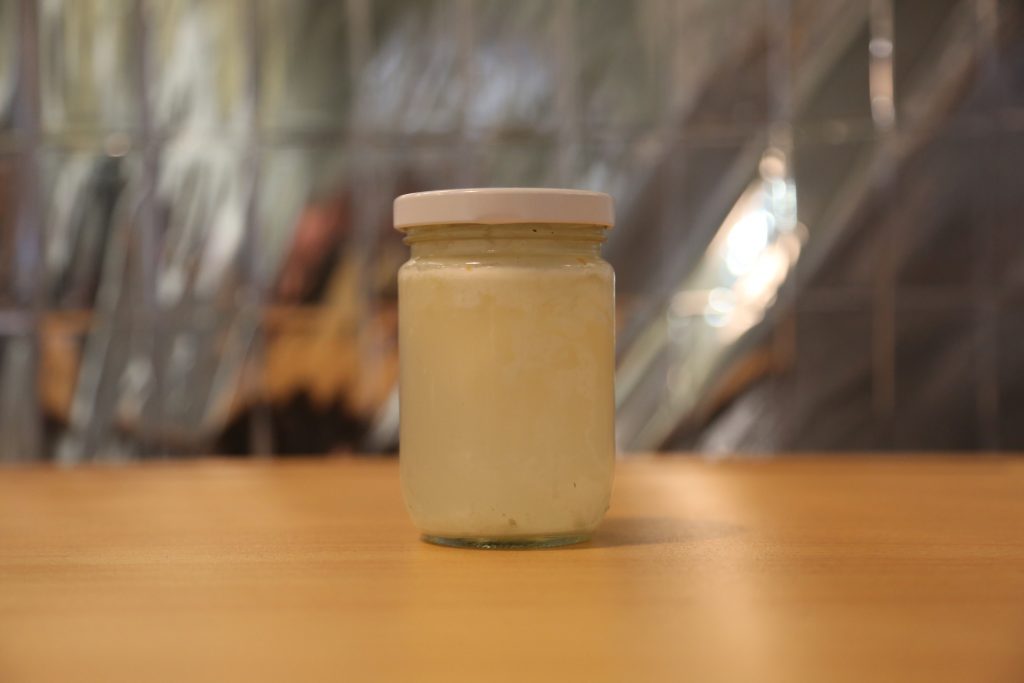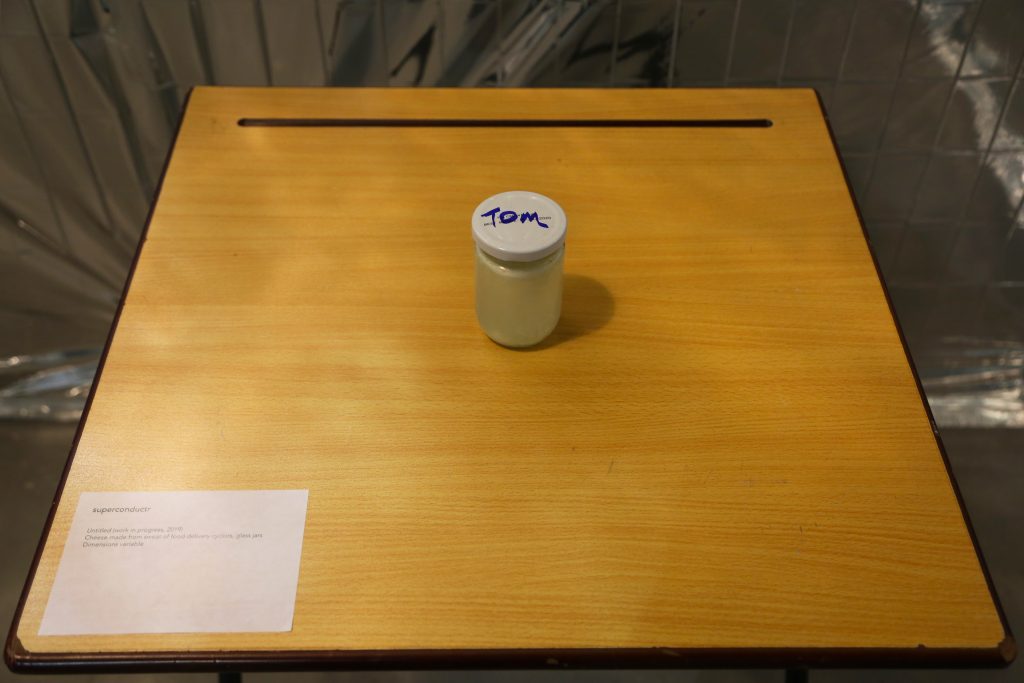Work, work it
Work, work to be a winner
Sweat, work it
Sweat, sweat to be a winner(Marie Davidson – Work It)
Faux frais of production is a concept from classical political economy, which refers to incidental costs of production: expenses incurred in the process of production that do not add value to the product. This can include bookkeeping, cleaning, repairs, advertising, insurance, bribes, taxes, etc. For Fromage faux frais (of production), another kind of incidental expenditure is being repurposed in order to be turned into a new source of nourishment: this project involves the collection of sweat samples from cyclists working for food delivery platforms, from which a set of artisan cheeses is made.
When working as a cycle courier, the sweat excreted by the body is an ever-present material trace of the physical exertion that this type of labour involves. The interface that customers use when ordering food, as well as the packaging that the food arrives in, evoke a sprightly and clean image, but this cannot erase the fact that the workers whose labour transports the food packages from one place to another exist in messy and, in the words of feminist theorist Margrit Schildrick, ’leaky’ bodies, while the strain involved the work serves to further accentuate these very qualities of the body. Collecting sweat brings attention to these incidental expenditures of the body that otherwise are obscured and obscene, allowing for the repurposing of what initially was only a bodily excess, to create a new material substance that contains germs (in the most literal sense) of the old.
Even in their purely milk-based form, many types of cheese emit odours that are reminiscent of those of the human body. To some extent, the idea of sweat is already contained in the quality of cheesiness. On the other hand, cheese also is food, food being cheese’s main social function of course. Fromage faux frais (of production) sets up a circuit that extrapolates material from the bodies of workers who are engaged in the labour of delivering nourishment to others with the help of bodily exertion. The bodily excess produced during this labour is entirely unrelated to the service performed as such, yet it also is an unavoidable outcome of performing precisely this service.

